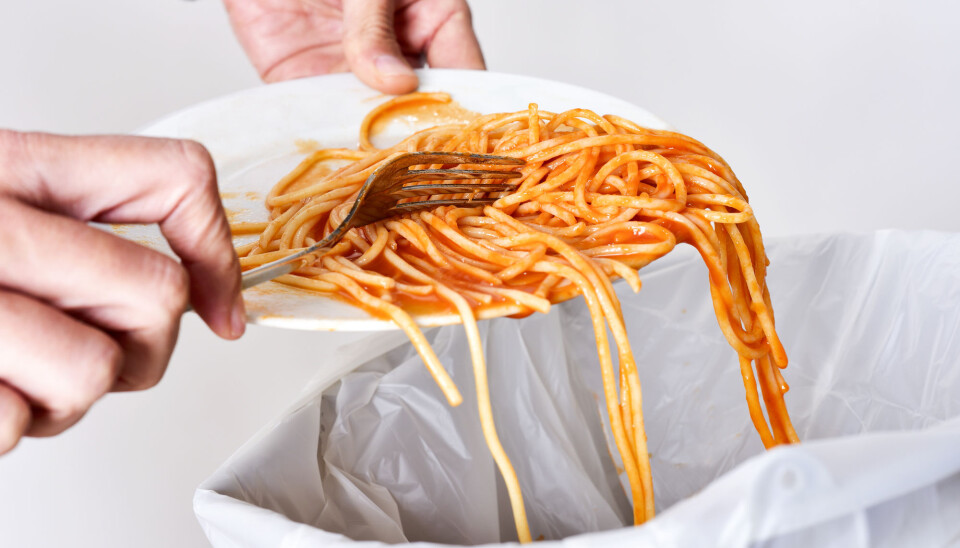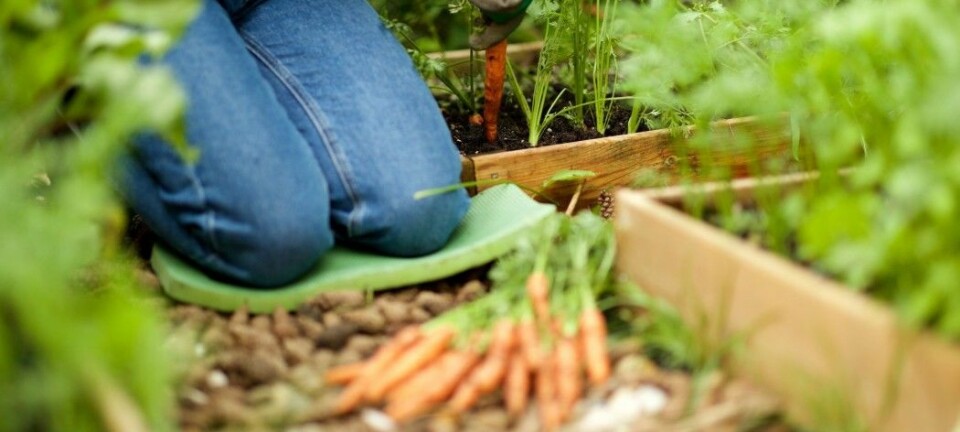
Norwegians are wasting less food since the coronavirus crisis
One in five Norwegians are throwing away less food than they used to. Many have also gotten better at cooking, a new survey suggests.
Has the coronavirus crisis affected Norwegians' eating habits and attitudes toward food? A new opinion poll indicates that the answer is yes.
More people appreciate the individuals who produce food and make it available in stores.
Many Norwegians say they have also become better at experimenting in the kitchen, according to a survey of 1061 Norwegians that Norstat conducted for the company Too Good to Go.
Eager to dine out again
Eating out with family and friends came high on the list when people were asked what they were most looking forward to when restrictions ease up again.
Over half of those surveyed said they were looking forward to eating at a restaurant.
Nevertheless, it appears that more people than ever before have gotten hooked on making their own food. Only three per cent said they were looking forward to making fewer meals themselves.
"It seems like they want to have their cake and eat it, too, in a way,” says Lene Kallum, communications advisor for the company Too Good To Go.
Too Good to Go is an international company working to reduce food waste in 15 countries. The company links shops and eateries that have left-over food with people who want to buy food at a reduced price, thus keeping it from being thrown away.
Better cooking skills
One out of four people surveyed said they have developed new eating habits and cooking skills as a result of the coronavirus crisis.
First and foremost, they have become better at using leftovers and making more meals themselves.
Some people have also started experimenting more in the kitchen.
This is the first time the survey has been conducted, and the changes reported reflect the participants' self-described habits before and after the coronavirus crisis.
So, perhaps we should take some of this information with a pinch of proverbial salt.
Spending same amount on food
Nevertheless, it doesn’t look like Norwegians are spending more money on food than before the coronavirus crisis struck, despite the fact that food producers such as Orkla have had record results, according to the national newspaper Aftenposten.
Only 15 per cent said they’re spending more on food, while 18 per cent said they thought they were spending less money on food.
“This may reflect the fact that many people have been laid off or have lost their jobs, so they have less money to spend in general, including when it comes to food. Limited finances and more time at home may also have created an increased interest in using leftovers rather than throwing them,” Kallum said to sciencenorway.no.
Norwegians who have kept their jobs and have the same income may have spent more money on food because there has been little else to spend money on.
Appreciate food more
As a result of the coronavirus crisis, fewer people seem to take food for granted now than they did before the crisis struck.
Four out of ten said they value food to a greater extent than before.
Nearly seven out of ten have increased respect for people who work to provide society with food, including farmers and shop employees.
One in four also said that they have learned new things about Norwegian food production.
Another study by Nofima, a national institute that conducts applied research in fisheries, aquaculture and food, has shown that the coronavirus crisis has led to more unhealthy eating habits for many Norwegians. Young adults, people without children and low-income families have eaten more ready-made food, pizza and hot dogs than before.
But at the same time, other Norwegians have become better at cooking from scratch.
This is mostly true of women, who have thrown themselves into baking with yeast, making sourdough bread and trying out new recipes.
One in five has cut food waste
One in five respondents, or 20 per cent, said they are throwing away less food than they used to. They said the main reason for this is that they plan food purchases to a greater extent than before. In addition, they have more time to cook with unprocessed foods.
As many as nine out of ten Norwegians are conscious of food waste. Only ten per cent said they didn’t think about it.
People who were between the ages of 18 and 25 were the least conscious of food waste. But they reported having become better at cooking than people in other age groups.
Seven out of ten said they believe the actions they take as an individual are important in solving major societal crises.
Translated by: Nancy Bazilchuk
Reference:
Report on Norwegians' eating habits during the coronavirus crisis (in Norwegian). Norstat on behalf of Too Good To Go.
———
Read the Norwegian version of this article on forskning.no
































